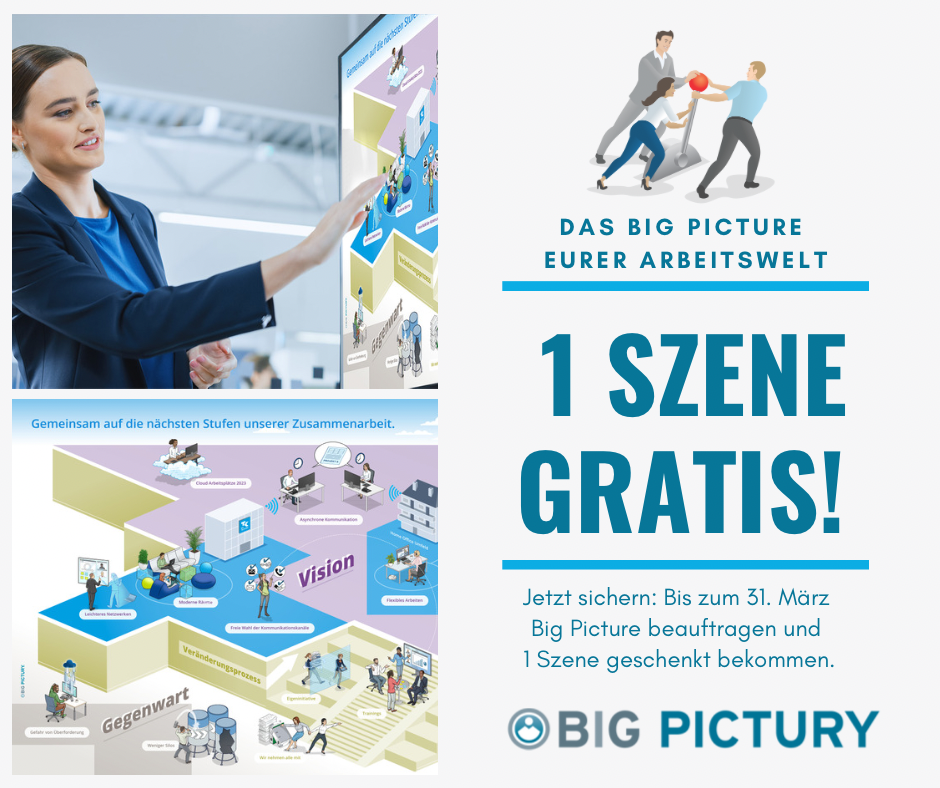Today’s businesses know all too well how fierce competition has become in attracting the best, most motivated employees – and how office design can play a crucial role in attracting them.
That was the starting point of a major new study by IDG Research Studies who surveyed company leaders and employees throughout 2018. 89% of managers questioned agreed with the statement, “Our business only has a chance in the ‘war for talents’ if we offer a modern workplace and attractive working conditions.” In their list of priorities, they placed only one issue before the Workplace of the Future. And that was IT security. They placed other success factors – even those widely regarded as crucial to success such as HR development – lower on their list of priorities.
Factor No.1: Work-Life Balance
Let’s see how employees responded. Asked what they wanted to see realized in the Workplace of Tomorrow, the leading answer was the same in 2018 as in preceding years: more flexible work models. 52% of respondents said this was important to them (multiple answers were permitted). 46% said they wanted faster network connection speeds. A relaxed, comfortable atmosphere and better ergonomics were only mentioned by 40 % of those surveyed, ahead of factors like teamwork or being able to influence how their workspace looks.
One survey question was: “Imagine you had to decide between several offers by potential employers who all offered you the same salary. How important are the following options when comparing the offers in making your decision? By far the most popular answer was Flexible work models for a better work-life balance; this option was cited far more often than excellent IT equipment, fast network speeds, teamwork or a relaxing, comfortable office atmosphere.
This was mirrored by employee responses to a question about the opportunities employees see in new workplace and mobility concepts. Here, too, a better work-life balance was mentioned most often. This factor was rated so highly that risks (such as greater dependence on IT and network connections and always being available) didn’t significantly dampen the optimism felt by respondents. 55% said that the advantages would outweigh the drawbacks, while only 27% expected the reverse.
Reflecting real life
Attractive offices that embody company values send an important message that resonates throughout the entire company, communicating to staff that the leadership values them and recognizes their contribution. But for most employees, successfully balancing private life and work has the highest priority. And to do that means offering more than free catering, pinball machines and designer furniture.
Workplace satisfaction relies more on an intuitive sense of wellbeing and a positive social atmosphere, a fact exposed by the answers to the question, “What qualities do leaders need in the modern workplace?” The most popular responses were social skills, empathy, trust and humanity, universal values that dominate decision making in our daily lives outside of work and that play a major role in our subjective quality of life. If your relationship is imploding, you’re not going to enjoy a meal with your partner, even if it’s at the fanciest restaurant. The chef’s Michelin star isn’t going to make the evening enjoyable.
In essence, this issue revolves around more than just the Workplace of Tomorrow. It's really all about the Employer of Tomorrow. We need to be honest about what the results of the IDG study mean: Designing workplace environments is a key factor in realizing the Workplace of Tomorrow. But it’s important to integrate this with other factors, both at the initial concept stages and during implementation.
There’s no denying it: the world is getting more complicated. The workplace is no exception.
Here you find the complete study (german).
Source: IDG Research Services
Author: Jonas Demel
© Office Inspiration

